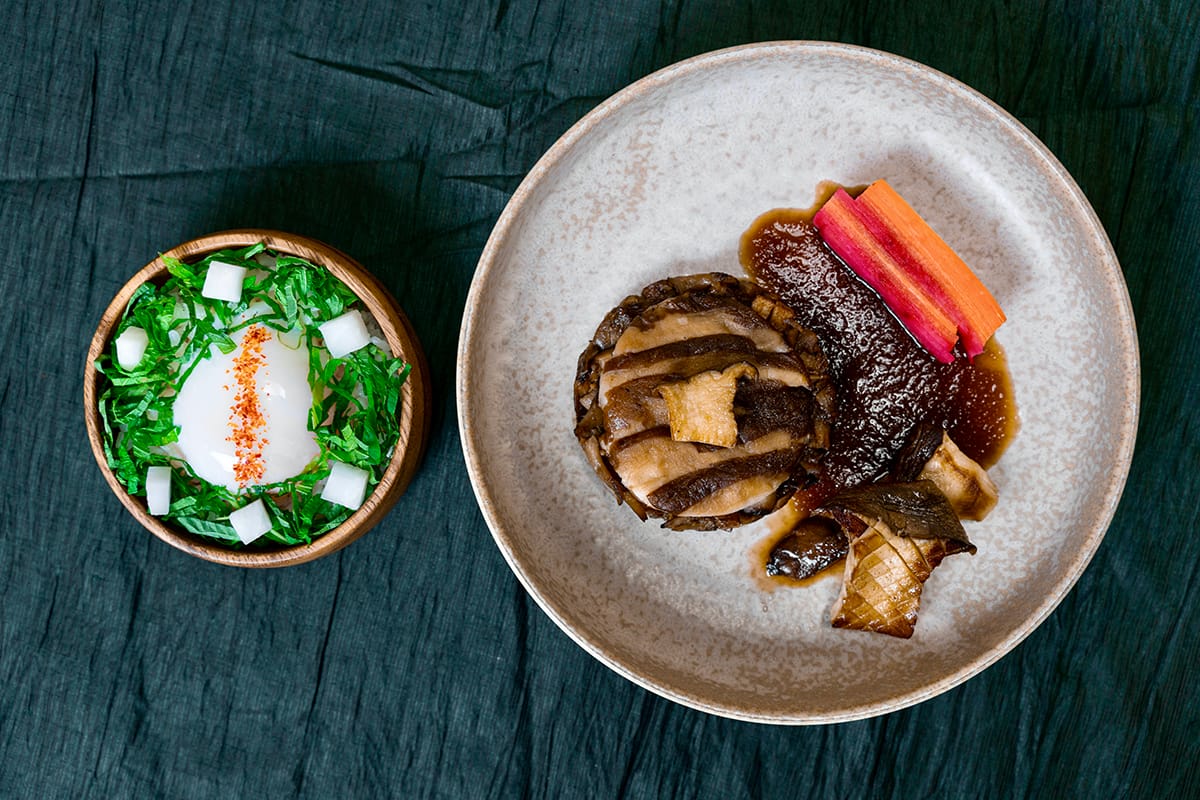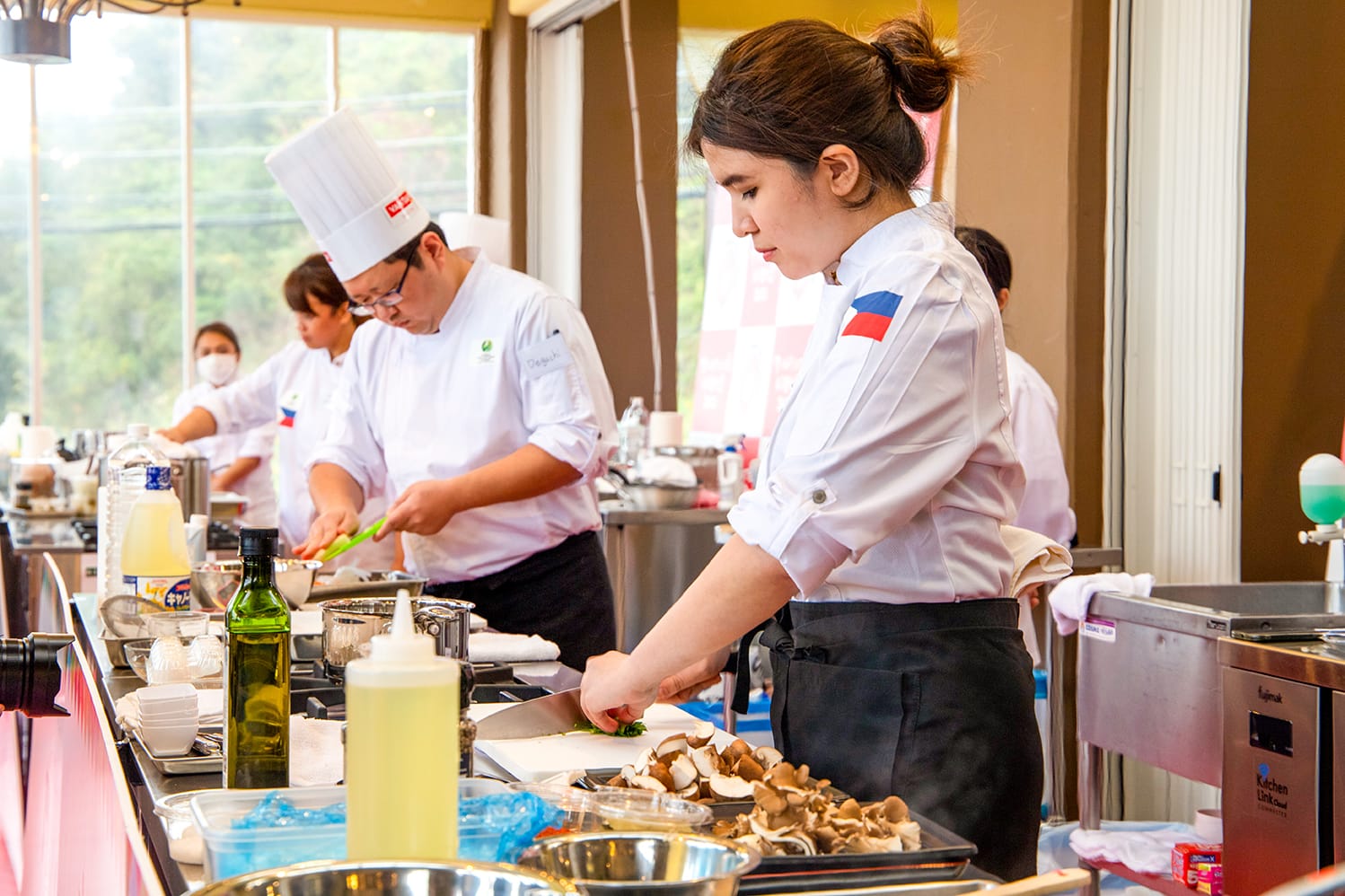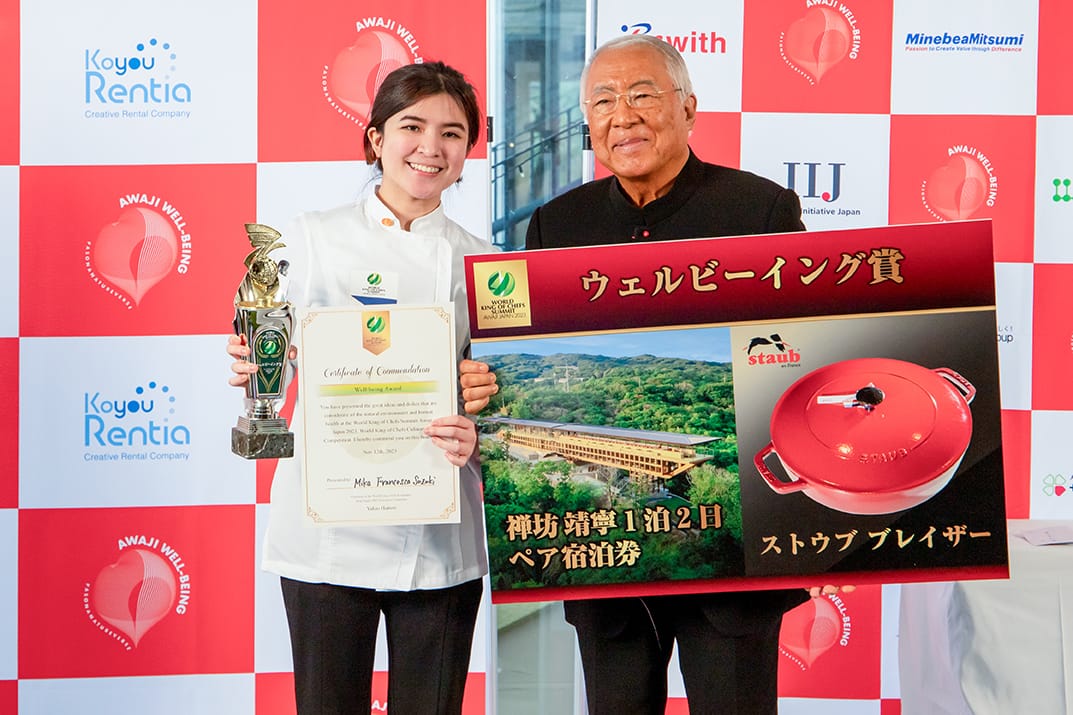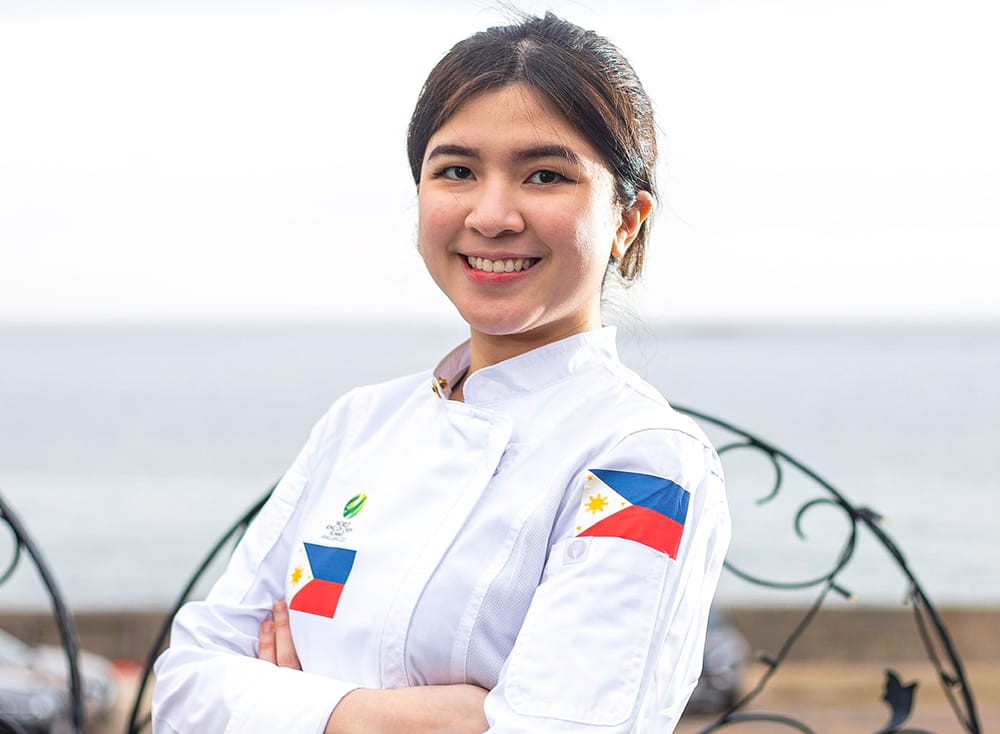Interview by Florenda Corpuz, Words by Len Armea
The World King of Chefs Summit 2024, a prestigious culinary competition showcasing international chefs and diverse cuisines with a focus on well-being, is set to return to Awaji City, Hyogo Prefecture, from Nov. 16 to 18.
Before a new set of winners is announced, let’s turn the spotlight on Mika Suzuki, the first-ever Filipino chef to win the coveted Well-Being Award at last year’s competition for her creative take on a beloved Philippine dish: Adobo.
Suzuki gained widespread attention in the competition with her innovative creation, “Mushroom Adobo,” or “Umami Mushroom Adobomb with Zero-Waste Ensalada.” By substituting mushrooms for the traditionally meat-based adobo, she made the dish suitable for a wider range of dietary preferences. This aligns with her philosophy that no one should be excluded from the joy of eating.

Chef Mika’s Umami Mushroom Adobomb with Zero-Waste Ensalada
“I know it’s far from the authentic adobo that Filipinos know and love, but throughout my career, I’ve learned there are many factors to consider when people eat– dietary restrictions, sustainability, and even religious limitations on ingredients,” the 30-year-old Tokyo-based chef shared in an exclusive interview with the Filipino-Japanese Journal.
“I’ve always been a firm believer that these challenges shouldn’t prevent people from enjoying a dish as they normally would. That principle guided me when I created my Umami Mushroom Adobomb. Mushrooms, in particular, have immense potential, especially when cooked with the right techniques, which is why I chose them as a meat substitute,” she added.
In her speech, Suzuki explained that her dish was designed to highlight three aspects of well-being: environmental well-being by using mushrooms to reduce carbon footprint, physical well-being by substituting caramelized Awaji onions for sugar, and mental well-being by crafting a simple, healthy, and easy-to-make recipe.

“Mushrooms produce 50% less carbon footprint than beef and 10% less than pork or chicken. By using this ingredient, sourcing all products locally in Japan, and utilizing every part of the vegetables, we can maximize our contribution to the Earth.
“Adobo traditionally relies on sugar to balance its sour and salty flavors. Instead, I opted for Awaji onions, caramelizing them to create a healthier, well-balanced dish.
“Lastly, I want to address mental well-being. The average person spends around 10 to 11 hours at work, including commute time, leaving them with little energy to think about what to cook at home. My goal was to create something that’s quick, simple, and easy to prepare, yet still healthy and hearty—something anyone can whip up,” Suzuki shared.
She expressed heartfelt gratitude for winning last year’s Well-Being Award, an achievement that allowed her to showcase her cultural roots on the global stage. The moment was even more meaningful as she received the award from the late Japanese food critic Yukio Hattori, a revered figure in the culinary world.
“Winning this award was a huge honor, especially because it reflected my aspiration to create dishes that are both good for the environment and our health. But the best part of last year’s competition was meeting so many amazing chefs and people. I had so much fun that it didn’t even feel like a competition,” she enthused.

Chef Mika (left) receives the Well-Being Award from the late Japanese food critic Yukio Hattori (right), Chairman of the World King of Chefs Summit Executive Committee, last year.
With nearly a decade of experience in Japan’s culinary scene, Suzuki has trained at Michelin-starred restaurants and worked in the kitchens of prestigious five-star hotels, as well as with reputable companies like Google, Ueat, and Foodpanda.
Her love for cooking began as a child, finding joy in preparing meals for her sister using whatever ingredients were available at home. This early passion eventually led her to pursue culinary arts in Japan, where she studied at the esteemed Le Cordon Bleu.
Looking ahead, Suzuki hopes to continue infusing her dishes with a sense of “tahanan”—the Tagalog word for “home”—and to forge meaningful connections through her food.
“I can only hope my dishes bring people happiness, optimism, and a deeper appreciation for the stories behind each dish and course,” she shared.
She also encourages young Filipinos to chase their dreams, no matter the challenges they may face.
“The best advice I can give is to just go for it, especially if it’s something you’re truly passionate about. There will be plenty of obstacles, and it’s a career that demands both physical and mental strength. But if you approach it with passion and love for the craft, the journey—and its rewards—will always be fulfilling.”


